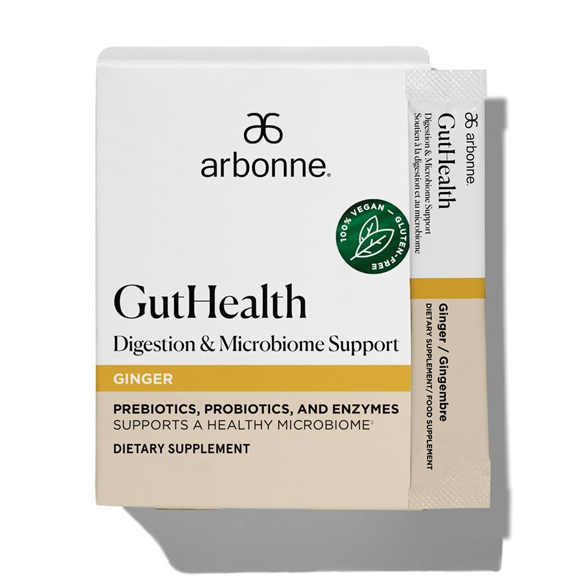Discover the Trick to Food Digestion and Immunity With Gut Health And Wellness Assistance

Comprehending Digestive Tract Wellness
Comprehending intestine health and wellness is vital for overall well-being, as it plays a considerable role in digestion, immunity, and even psychological wellness. The intestine, comprising the stomach tract, is in charge of breaking down food, soaking up nutrients, and eliminating waste. A well balanced digestive tract atmosphere makes certain effective digestion, allowing the body to use nutrients efficiently.
Moreover, intestine health and wellness considerably impacts the immune system. The digestive tract houses a considerable part of the body's immune cells, and a healthy and balanced digestive tract can help fend off pathogens and minimize inflammation. Disturbances in gut health and wellness can lead to an over active immune action, potentially adding to autoimmune conditions and allergies.
Furthermore, the intestine is typically described as the "2nd brain" because of the gut-brain axis, a complex communication network linking the digestive tract and the mind. This link influences mood, cognition, and psychological well-being. Issues such as dysbiosis, defined by an imbalance in digestive tract microorganisms, have been connected with mental health and wellness problems, including anxiety and anxiety.
The Gut Microbiome Explained

The gut microbiome, a varied neighborhood of bacteria living in the intestinal system, plays a pivotal role in maintaining digestive system health and overall wellness. Making up trillions of microorganisms, viruses, fungi, and other germs, this facility environment aids in the food digestion of food, the synthesis of important nutrients, and the regulation of metabolic procedures.
Each person's gut microbiome is special, influenced by variables such as diet plan, lifestyle, genetics, and ecological exposures. A balanced microbiome sustains optimal digestion by breaking down complicated carbohydrates, creating short-chain fatty acids, and promoting the absorption of nutrients. Conversely, an imbalance, frequently described as dysbiosis, can lead to digestion disorders, consisting of irritable bowel syndrome (IBS) and inflammatory digestive tract illness (IBD)
Research study has actually demonstrated that a diverse microbiome is associated with much better health and wellness results, underscoring the relevance of dietary options in nurturing these microbes. Foods rich in fiber, probiotics, and prebiotics, such as fruits, vegetables, and fermented products, can promote a healthy microbiome. Comprehending the intestine microbiome is crucial for establishing targeted interventions focused on improving digestion wellness and protecting against intestinal diseases.

Link Between Digestion and Resistance
A durable link exists between food digestion and resistance, highlighting the important duty of the digestive tract in preserving total health and wellness. The gastrointestinal tract is home to trillions of microorganisms that create the intestine microbiome, which significantly affects both gastrointestinal processes and immune responses. This complicated ecosystem help in damaging down food, taking in nutrients, and providing essential metabolites that support immune function.
When food digestion is reliable, the digestive tract obstacle continues to be undamaged, protecting against harmful virus from entering the bloodstream (gut health supplement). On the other hand, poor digestion can bring about an inequality in the microbiome, resulting in dysbiosis, which has been linked to various health and wellness issues, including inflammatory conditions and autoimmune illness. Roughly 70% of the immune system lives in the gut-associated lymphoid cells (GALT), which communicates carefully with the digestive tract microbiome. This interaction guarantees that the body immune system can effectively compare useful and harmful compounds.
Tips for Supporting Gut Health
Supporting digestive tract wellness is vital for maintaining both gastrointestinal efficiency and a well-functioning body immune system. To cultivate ideal digestive tract health, think about integrating several functional strategies into your day-to-day regimen.
First, prioritize hydration. Consuming alcohol ample water sustains food digestion and assists keep the mucosal cellular lining of the intestines. Furthermore, normal exercise can boost digestive tract motility and promote a varied microbiome.
Mindful eating practices are likewise essential. Eating food completely and consuming gradually can assist digestion and avoid overeating, which may worry the digestive tract. In addition, managing tension via strategies try this such as meditation, yoga exercise, or deep-breathing exercises can favorably affect digestive tract health and wellness, as stress is understood to disrupt digestive system processes.
Incorporating prebiotics and probiotics right into your program is an additional effective method. While certain foods will certainly be reviewed advice later, comprehending the importance of these components is crucial. Prebiotics act as food for beneficial intestine germs, while probiotics introduce real-time useful microorganisms.
Finally, stay clear of extreme use anti-biotics, as they can disrupt the balance of digestive tract flora. By following these suggestions, you can substantially add to the maintenance of a healthy digestive tract, which is important for total health and wellness and vigor.
Foods That Promote Intestine Wellness

Fermented foods, such as yogurt, kimchi, sauerkraut, and kefir, are abundant in probiotics, which are helpful bacteria that support gut flora and enhance digestion. These foods can assist restore equilibrium in the intestine, especially after antibiotic usage or digestive system disruptions.
In addition to fermented options, prebiotic foods, such as garlic, onions, asparagus, and bananas, serve as sustenance for these probiotics, promoting their development and task. These soluble fibers support digestive tract motility and can relieve concerns like irregular bowel movements.
In addition, including high-fiber foods, including whole grains, fruits, beans, and veggies, is important for maintaining a healthy intestine. Fiber aids in regular digestive tract movements and helps protect against digestive conditions.
Lastly, omega-3 fats discovered in fatty fish, flaxseeds, and walnuts have anti-inflammatory residential or commercial properties that can better sustain digestive tract health. Emphasizing these foods in your diet plan can cause a durable digestion system and improved immune feature.
Conclusion
In conclusion, focusing on digestive tract health and wellness is vital for enhancing digestion and improving immunity. A balanced intestine microbiome, affected by dietary choices and way of living factors, plays a vital function in nutrient absorption and swelling decrease.
Understanding digestive tract wellness is essential for total wellness, as it plays a considerable duty in food digestion, resistance, and also psychological health. The digestive tract houses a considerable portion of the body's immune cells, and a healthy and balanced digestive tract can help fend off virus and decrease inflammation.Furthermore, the intestine is frequently referred to as the "2nd mind" due to the browse around this site gut-brain axis, an intricate communication network linking the mind and the intestine.A durable connection exists between digestion and resistance, highlighting the critical duty of the gut in keeping general health.In final thought, focusing on intestine health and wellness is necessary for optimizing digestion and boosting immunity.